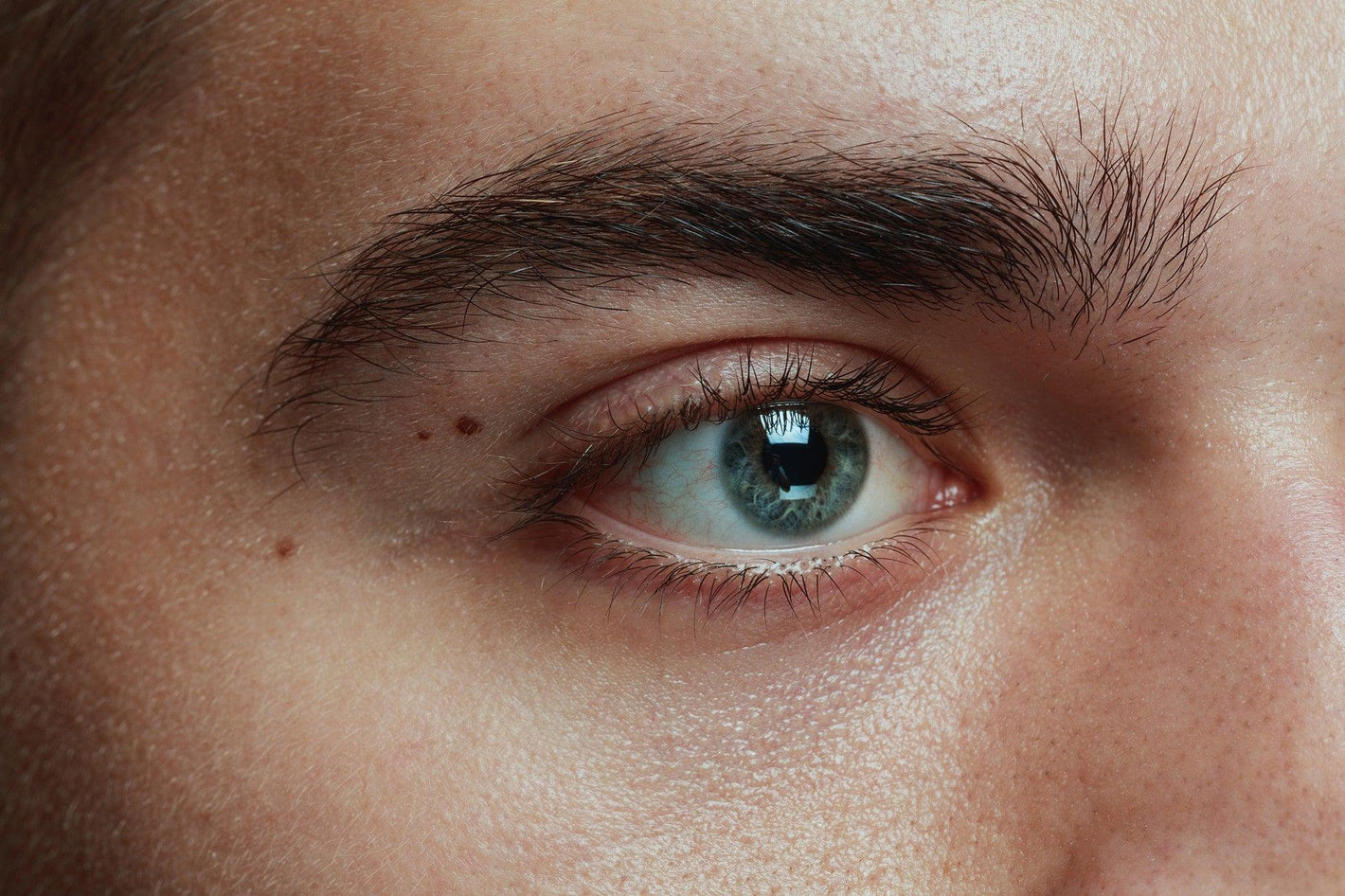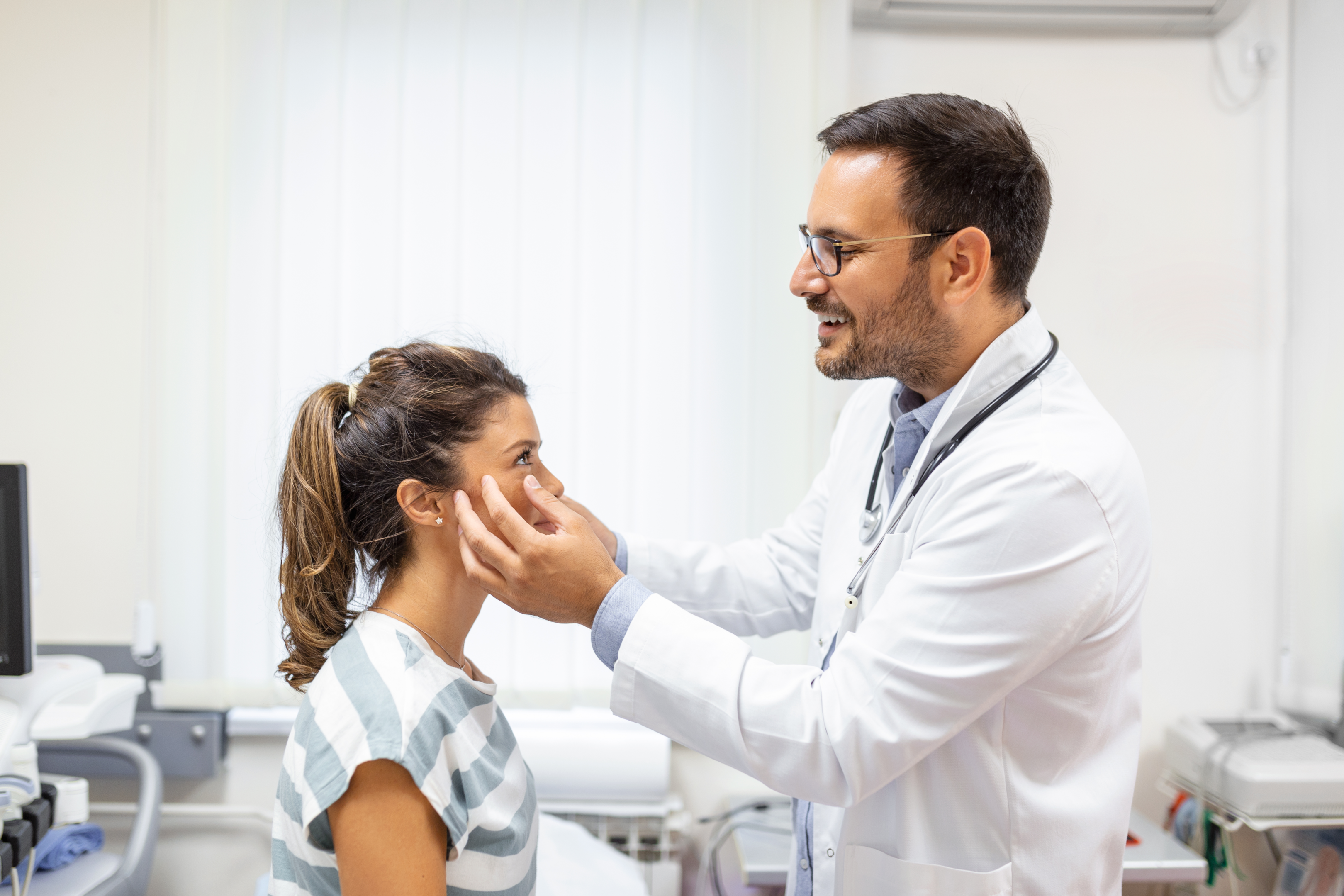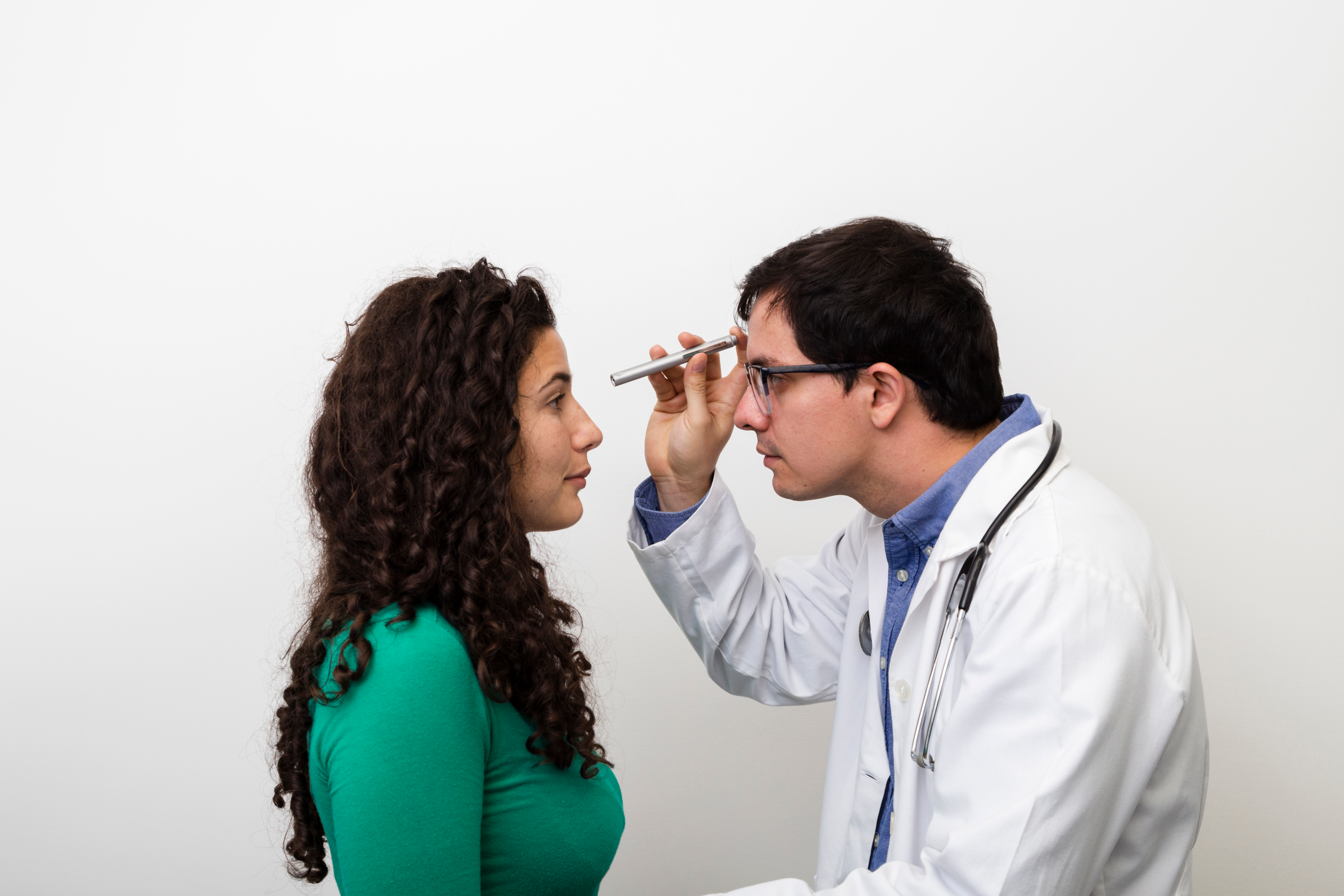Can I Get Chlamydia In My Eye?



Chlamydia is a bacterial infection that spreads by sexual contact and can be passed from mother to child during birth. It can also be spread from the genitals to the eyes. However, this is rare because there aren't as many bacteria in tears as there are in vaginal or anal secretions.
The bacterium chlamydia trachomatis is the causative agent of sexually transmitted chlamydia. It can infect the genitals, anus, eyes, and throat. This chlamydia bacteria also cause other sexually transmitted infections (STI), including lymphogranuloma venereum (LGV), which can cause painful genital sores and chancroid, a sexually transmitted disease (STD) that causes open sores on the genitals.
In most cases, chlamydia does not cause symptoms in infected men or women. But sometimes, this STI can be characterized by:
Painful urination
Pain during sex
Burning or itching sensation around the genital area, testicles or rectum
Mucus discharge from the penis or vagina
Menstrual irregularities in women
The symptoms of chlamydial infection appear 1 to 3 weeks after being infected with chlamydia. Still, sometimes they might not show up for months. They are often mild, and most of those who have it don't know they're infected. If left untreated, chlamydia can lead to complications such as infertility in men or women.
Learn more about chlamydia infection on our Health Hub.
Chlamydia can cause inflammation of the urethra, a tube that runs from your bladder to outside your body. It's where semen comes out during ejaculation. If you have an infection in this area, it can hurt when you pass urine and may make you feel like you have to urinate all the time. It may also mean you get more frequent urinary tract infections (UTIs).
Chlamydia can cause inflammation of the epididymis, which is a small tube that connects each testicle with its vas deferens (another tube that carries sperm from the testicles).
Chlamydia can also cause inflammation of the prostate gland and prostate cancer in men who are infected with Chlamydia and men who aren't infected by it.
Order a chlamydia testing kit to determine if you have a chlamydia infection.
In addition to these problems, chlamydia may lead to long-term complications such as infertility in men because it damages their reproductive organs over time.
If a woman has chlamydia and doesn't get treatment, she can develop pelvic inflammatory disease. This condition can cause infertility. It can also lead to ectopic pregnancy, miscarriage, premature birth or stillbirth.
Chlamydia is transmitted when an infected person has contact with another person's mouth, vagina or anus. It can happen during oral sex (oral to genital), vaginal sex or anal sex. It can't be spread by kissing or other forms of physical contact that don't involve intimate body parts and fluids, such as hand-holding and hugging. Toilet seats do not spread the infection.
Read more: How do I know if I have chlamydia?
Chlamydia is a bacterial infection transmitted when an infected person has unprotected sex with someone else. If you touch their genitals or other areas of their body and then touch yourself—or vice versa—it's possible for you to contract chlamydia from them through contact with the bacteria in their fluids.
However, it's improbable that this would happen; chlamydia is usually passed through vaginal or anal sex, so if someone has touched themselves after touching an infected person, they're unlikely to have contracted chlamydia because they were probably not exposed to enough of any infected fluids during the first incident (such as ejaculate).
How can you acquire Chlamydia in your eye?
Bacteria that cause chlamydia can also infect the eyes. This is called ocular chlamydia or chlamydial conjunctivitis. It is also sometimes termed adult inclusion conjunctivitis. Ocular chlamydia is transmitted when an infected person has contact with another person's mouth, vagina or anus. It can happen during oral sex (oral to genital), vaginal sex or anal sex. Ostensibly stemming from poor personal hygiene, the ocular manifestation of the infection can happen when your eye comes into direct contact with the genital fluids of an infected person. It can include:
An infected person's semen
Cervical mucus from an infected woman
The vaginal fluids of an infected woman
Saliva from an infected person
You may not experience any symptoms at all in some cases. If you do have symptoms, they are usually mild. Chlamydia eye infections share common symptoms with other bacterial eye infections, such as conjunctivitis and blepharitis.
Pain in your eyes that worsens when exposed to light
Sensitivity to bright lights (photophobia)
Eyelid swelling
Soreness and redness of the eye
Itching and burning around the eyes
Swollen lymph nodes around the eyes
The symptoms can last up to two weeks and come back after several months. If untreated, the infection can spread from your eyes to other parts of your body, such as the brain or heart. Ocular proctitis is the medical term for this condition. Not treating it can lead to irreversible vision loss or even blindness. It can also lead to cornea scarring, which can cause vision loss without adequate treatment.
Check here to learn how to treat Chlamydia.

Chlamydial eye infections are diagnosed by testing the conjunctiva. Testing with an ophthalmologist could be recommended for you in the future. Your doctor may also ask about your sexual history and any symptoms you might have experienced.
Treatment for a chlamydial eye infection usually involves antibiotic eye drops. The treatment can take seven to 14 days, depending on how severe the infection is. After treatment, you must avoid exposing your eyes to sexual fluids until symptoms disappear entirely.
Suppose you have ocular chlamydia and your symptoms aren't severe. In that case, your doctor may prescribe antibiotic ointment to prevent the infection from spreading. You should apply this treatment three times a day for seven days.
If you've been diagnosed with ocular chlamydia, you must let your partner know. They may need to be treated as well. Get a test again after six months because the infection could be re-established at any time.
You can do some things to avoid getting chlamydia in the eye.
Practice safe sex by using condoms and having regular STI screenings, especially if you are sexually active. Using a condom or dental dam during sexual activity can help prevent the spread of infection from one partner to another. You must also get tested regularly for STDs and HIV if you have multiple partners or engage in unprotected sex.
Don't share eye makeup applicators, razors or towels with someone who has an infection in their eyes.
Wash your hands carefully before touching your eyes, face or eyelids so you don't spread bacteria, especially when removing makeup or applying sunscreen.
Avoid touching your eyes if you have an eye infection or conjunctivitis, and wash your hands thoroughly after touching them.
If you have wounds or rashes on your genitals, it's best to abstain from having sex until it heals completely.
Visit a doctor or optometrist if you see any indications of an eye infection, such as redness, pain or discharge from your eyes.
Read more: Can I get chlamydia from kissing?
Ocular chlamydia in new-borns can be severe, so it's vital to prevent eye infections in new-borns. New-borns babies risk developing ocular chlamydia if their mothers have the condition and deliver them vaginally before being treated. If you're pregnant or about to become pregnant, visit your doctor or optometrist regularly to ensure you don't have an eye infection.
Doctors may prescribe antibiotics for pregnant women who have chlamydia to take during the third trimester of pregnancy. It will help prevent the spread of chlamydia to their babies.
When giving birth, ensure that anyone who has contact with your baby takes precautions against spreading any infections they may have—including chlamydia. If you're breastfeeding, wash your hands before feeding your baby and avoid touching the eye area of your new-born. If your baby has conjunctivitis, keep them away from other people until his eyes have healed.
Chlamydia isn't just a transmitted disease that affects your sexual organs. It can spread through contact with infected secretions, such as those found in the eyes. If you have chlamydia, you must get tested regularly and take precautions against spreading it to others.
And while it is often assumed to be a genital infection, chlamydia can also affect the eyes. Suppose you notice symptoms of conjunctivitis and are experiencing them for the first time. In that case, it may signify that something else is happening—like eye chlamydia.
It's also important to know that there are many strains of chlamydia, and some can cause more severe issues than others. So if you're experiencing symptoms of conjunctivitis that don't improve within some days or a few weeks, see your doctor immediately. Effective treatments are available and can help you prevent more serious issues from developing.
Try this chlamydia test to help you act immediately.










Plus get the inside scoop on our latest content and updates in our monthly newsletter.